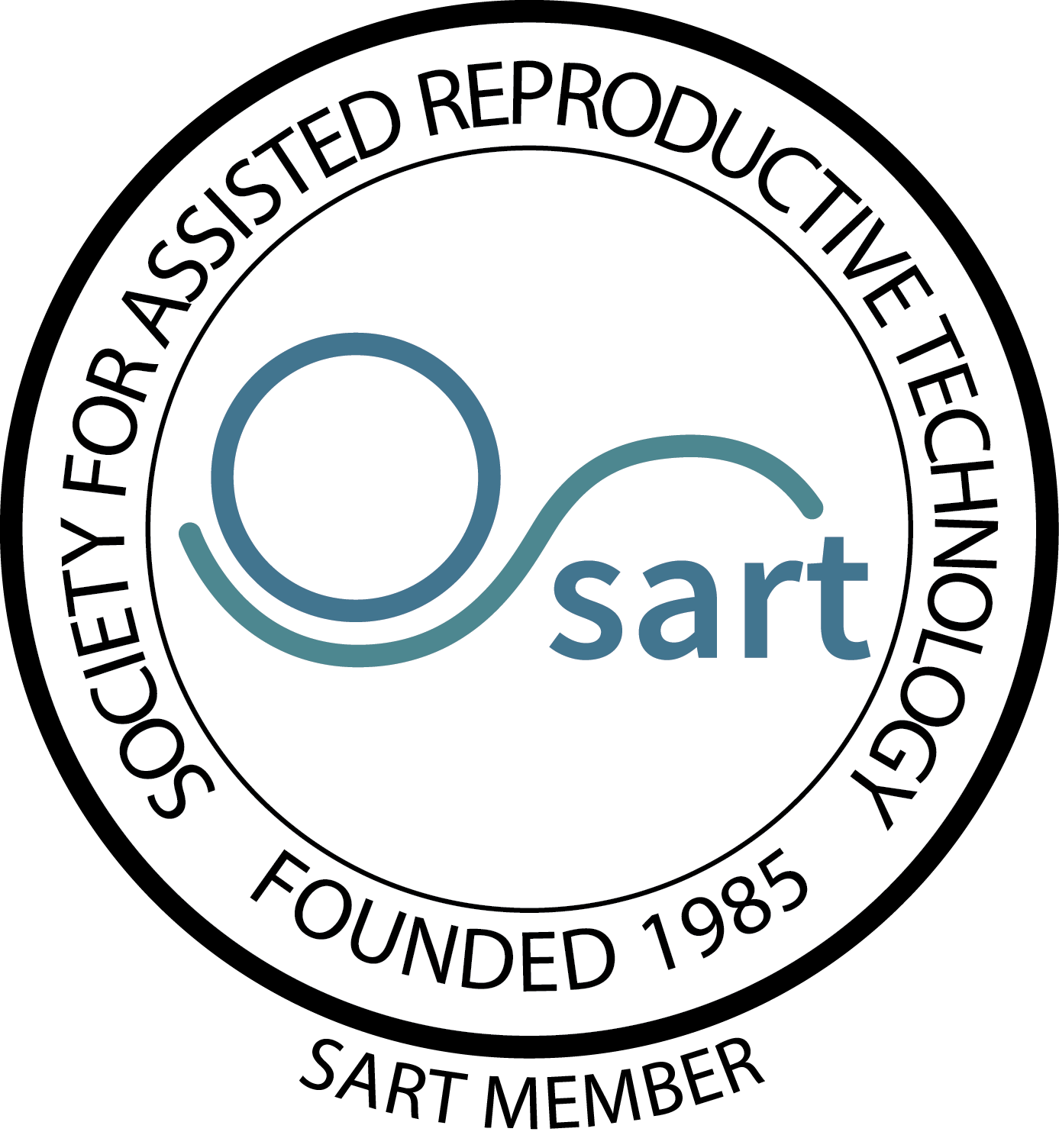Fertility Associates of Memphis offers preimplantation genetic testing for certain couples undergoing in vitro fertilization (IVF). Preimplantation genetic tests are laboratory procedures designed to allow evaluation of embryos prior to implantation so that couples can significantly lower, but not completely eliminate, the chance of having a child affected by certain genetic conditions. The medical team at Fertility Associates of Memphis performed the first PGT procedure in the Midsouth in 1996. Our facility uses the latest techniques including trophectoderm biopsy, vitrification, and blastocyst cryopreservation to maximize pregnancy rates.
What is PGT?
When couples undergo an IVF cycle, oocytes (eggs) are taken from the mother, placed in a specialized culture media and fertilized with sperm, resulting in an embryo. This embryo then grows in a laboratory environment for between 3 to 5 days. Preimplantation genetic testing is the practice of surgically removing a cell(s) from this developing embryo, evaluating this cell for certain genetic properties, and using this result to determine which embryos would be optimal for uterine transfer. Since its introduction, thousands of normal infants have been born through the use of preimplantation genetic testing in the setting of advanced reproductive technology. There are two broad categories of testing, preimplantation genetic diagnosis (PGD) and preimplantation genetic screening (PGS).
What is Preimplantation Genetic Diagnosis?
Preimplantation genetic diagnosis (PGD) is the testing of embryos for specific genetic abnormalities known to exist in one or both parent(s). PGD can only be performed in conditions where a definitive genetic cause has been identified. Since the 1990s, improvements in the techniques used have allowed an increasing number of disorders to be tested for using PGD including, balanced chromosomal translocations in one or both parents, Huntington disease, Hemophilia, Sickle Cell Disease, Tay Sachs Disease, and Cystic Fibrosis. PGD is often performed in fertile couples wishing to reduce the chances of passing on a known genetic disorder to their offspring. PGD is a widely accepted technology to accomplish this goal within the professional community.
What is Preimplantation Genetic Screening?
Preimplantation genetic screening (PGS) is a screening test for aneuploidy within embryos developing from parents with a presumed normal chromosomal compliment. Aneuploidy is when embryos have an abnormal number of chromosomes. For example, Down syndrome is when there are three rather than two copies of chromosome 21. In reality, aneuploidy commonly occurs on all chromosomes (not just on chromosome 21). However, in most of the other 23 chromosomes, aneuploidy is not compatible with life and results in miscarriage. More than half of all miscarriages, in fact, are now felt to be secondary to aneuploidy. The rationale behind PGS is that women, especially women of advanced age or a known history of recurrent pregnancy loss, may be at increased risk for producing embryos that are aneuploid. Studies are underway determine which patient populations would benefit the most from PGS. PGS attempts to identify which embryos may have the greatest chance of being genetically normal.
How is PGT performed?
An IVF cycle is performed in which eggs from the mother are retrieved and fertilized with sperm. After 3 days of growth, embryos are comprised of about 8 cells and by 5 days many embryos are comprised of more than 100 cells. A biopsy performed with the aid of specialized microsurgical lasers and microscopes removes one or more cells from a developing embryo. These cells are evaluated at one of the nation’s top genetics laboratories and a genetic report outlines which embryos may be optimal for uterine transfer. This process is complex and customized to each patient’s special situation. Therefore, the type of genetic evaluation performed and even the stage of embryonic development at which the biopsy is performed is not constant from patient to patient.
What are the risks of preimplantation genetic testing?
The greatest risk of all types of preimplantation genetic testing is misdiagnosis. The principal risk results from a phenomenon called “mosaicism” that is well documented to exist in embryos (up to 50% in embryos 3 days after fertilization and up to 10% in embryos at 5-6 days after fertilization). Mosaicism is when there are multiple different types of cell lines within a single embryo. In other words, mosaicism is when a portion of the cells in an embryo are normal and another portion of the cells are abnormal. This may result in inaccurate diagnosis from all types of preimplantation testing, both failing to diagnose abnormal embryos and falsely labeling abnormal embryos as normal. The impact of mosaicism is thought to be minimized by performing embryo biopsy 5-6 days after fertilization at which time the rate of mosaicism is lower as compared to 3 days after fertilization. Though less likely, there also exists the possibility that laboratory or human error could lead to an inaccurate result. Additional concerns include possible damage to developing embryos caused by the act of embryo biopsy itself.
How do I schedule preimplantation genetic testing?
To schedule an appointment with one of our Board Certified Physicians, please call the IVF Nurse Coordinator at 901-747-2229. The process of IVF and preimplantation genetic testing will be explained at the initial visit and any required tests will be ordered.








